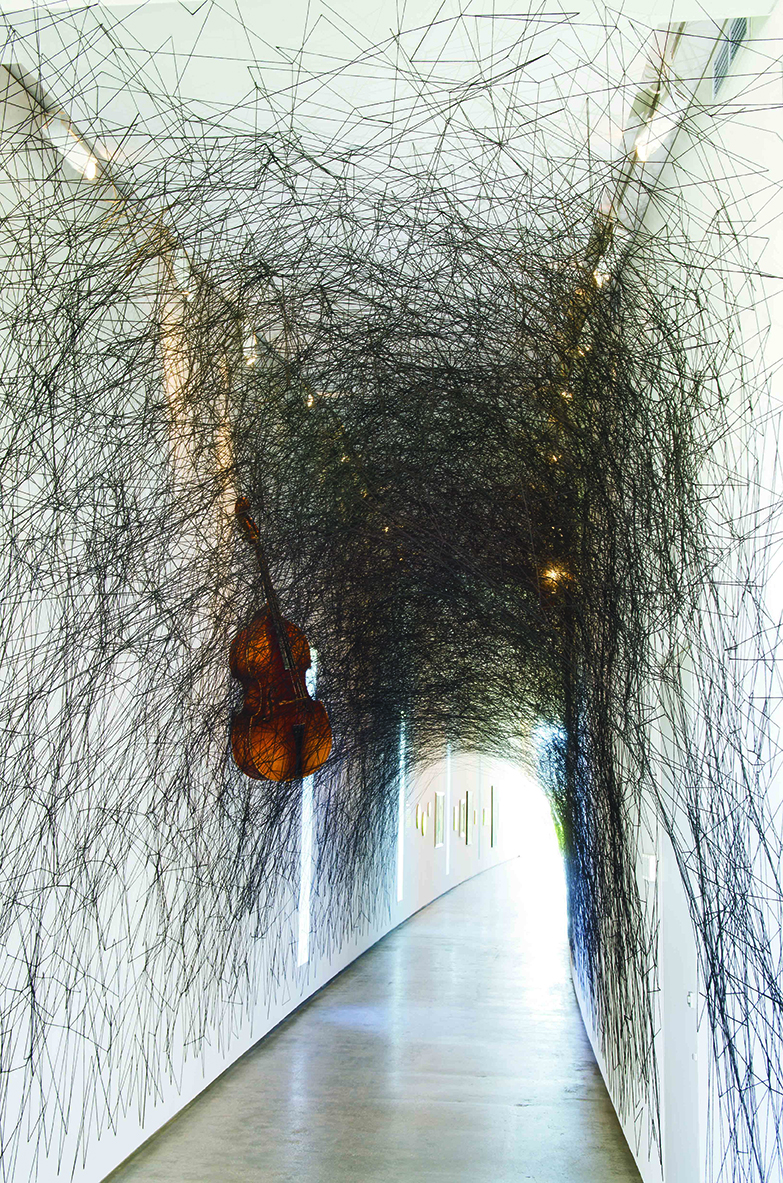Chiharu Shiota: State of Being
With a diverse art practice which encompasses performance, video and drawing, Osaka-born, Berlin-based artist Chiharu Shiota is perhaps best known for her captivating installations in which personal, everyday objects are cocooned within intricate and vast webs of black yarn. In this latest work, the artist has transformed the Museum’s Vista Walk, enmeshing a beautifully weathered double bass and an antique violin within a complex network of thread which proliferates in countless layers throughout the space.
For Shiota, far more than mere material entities, used objects are imbued with an inner life of their own: ‘for me these objects … are reminders of human memories, and I can see their state of Being. These materials are all expressions of human acts’. In this sense, the work represents a form of remembrance, a way of memorialising the lived history of these instruments whereby, as the artist describes, ‘the wool … becomes a weave of memories’, delicately outlining the complex tangle of feelings of loss and absence often engendered when contemplating past experiences.
For Shiota, beyond her own personal attachments and connections, the audience’s interaction and involvement with her work is a key element in its realisation. In discussing another recent wool installation entitled Second Skin she states: ‘Viewers moving through the installation create transformation by the very nature of moving through it. Shifting, even briefly, physical perceptions become a time based and personal journey whilst moving through the work’. Unlike Ariadne’s thread which leads the way out of the maze, the yarn in this work is instead used to describe the labyrinth itself. Upon entering this installation one is irresistibly drawn into its psychologically-charged web, entangled within the restless twists and turns of thread which describe the artist’s, and perhaps our own, ‘state of being’.
Chiharu Shiota has been appointed as “Japan Cultural Envoy” to Australia for 2012 by the Agency for Cultural Affairs (Bunka-Cho).
